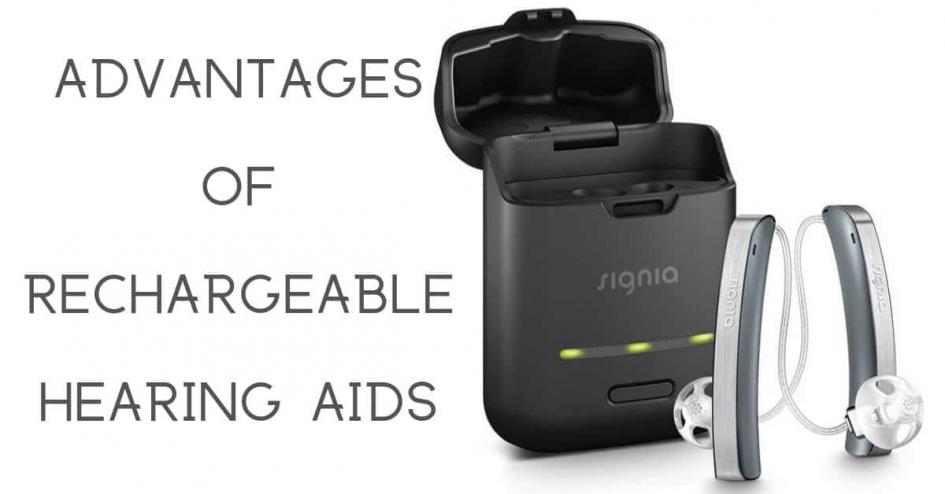
Advantages of Rechargeable Hearing Aids
You’re already enjoying the convenience and power of rechargeable batteries all of your other devices. Why not do the same with your hearing aid? As with any electronic device, buying and replacing our disposable hearing aid batteries has long been accepted as just one of those things that need to be done so you can continue to enjoy improved hearing. Meanwhile, other areas of the electronics industry begin to release rechargeable devices as standard. Just look at your smartphone, your e-reader and your laptop! It seems hearing aids may be one of the last devices to leverage rechargeable battery technology.
The rise of rechargeables
It’s not as if hearing aid manufacturers have been resting on their laurels. They have long tried to bring rechargeable hearing aids into the mainstream. Now, with the recent development of a smaller lithium ion battery that can power hearing aids of up to 24 hours on a single charge, this is the year they may finally succeed. This technology that has already being used to power your smartphone, tablet and cordless power tools is now small enough to fit into your hearing aid. A world of possibilities for hearing aid producers and wearers is created by the use of lithium-ion batteries. If you're wondering if they are right for you, here are some of the benefits of rechargeable hearing aids that we see.
1. No need to hold back on use hearing aid features
Regular disposable batteries worked quite well for previous hearing aids because these devices had comparatively fewer features, which meant less power needed for them to function. This meant that you could get about 2 weeks out of a battery before you had to throw it out. But with the recent hearing aid developments in Bluetooth streaming and digital technology, hearing aids are more taxing on their batteries than ever before. This leads to a bit of a trade off when using hearing aids: you can either have fewer features with a longer battery life or you can stream to your heart’s content and have your batteries last only a couple of days. With the advent of lithium ion rechargeable technology, this trade off disappears. You’ll be able to use your hearing aid in the way that you want without fear of the battery running out at some point in the day.
2. No additional costs
Substantial use of hearing aid batteries means that hearing aid batteries can cost some hearing aid users roughly $150 a year! With rechargeable hearing aids, only one battery is needed for 4-5 years of use.
3. Less hassle
You will understand the difficulty of replacing a battery every couple of days if you use hearing aids often. You have to first open your hearing aids, remove the old batteries and put the new ones in. This can pose a problem for those with low dexterity or limited vision. It's much more convenient with rechargeable batteries, where you merely need to place your hearing aids in their charging case in order to have fully-charged hearing aids in the morning.
4. All-day continuous use
As mentioned before, lithium technology has finally reached the point where it can power a hearing aid for most of the day. With under 5 hours of streaming, you can definitely make it last the whole day.
5. Convenient
Overnight charging means you will never be left without power. The charger will likely be an induction charger, which means it will charge by simply connecting. No more trips to the pharmacy, no more packages of batteries to open, no more dropped batteries that roll under the sofa!
6. Environmentally friendly
Disposing batteries waste valuable resources and adds to pollution. Many of us throw dozens out without even thinking about it. Those end up in a dump where harmful chemicals are released into the ground. There have been instances where improperly disposed batteries have contributed to the poisoning of fish in rivers and lakes. Recharging is an easy way to reduce people's environmental impact. Only one battery is used for up to 5 years, drastically reducing the number of batteries being disposed of.
House of Hearing
The team at House of Hearing can help you find the rechargeable battery model which is right for your need. If you’re ready to make the switch, contact us today!
Our Clinics
All House of Hearing clinics are in town centre locations and accessible to public transport and parking. Home visits also available if mobility is an issue.


.png)
.png)
.png)

.png)
